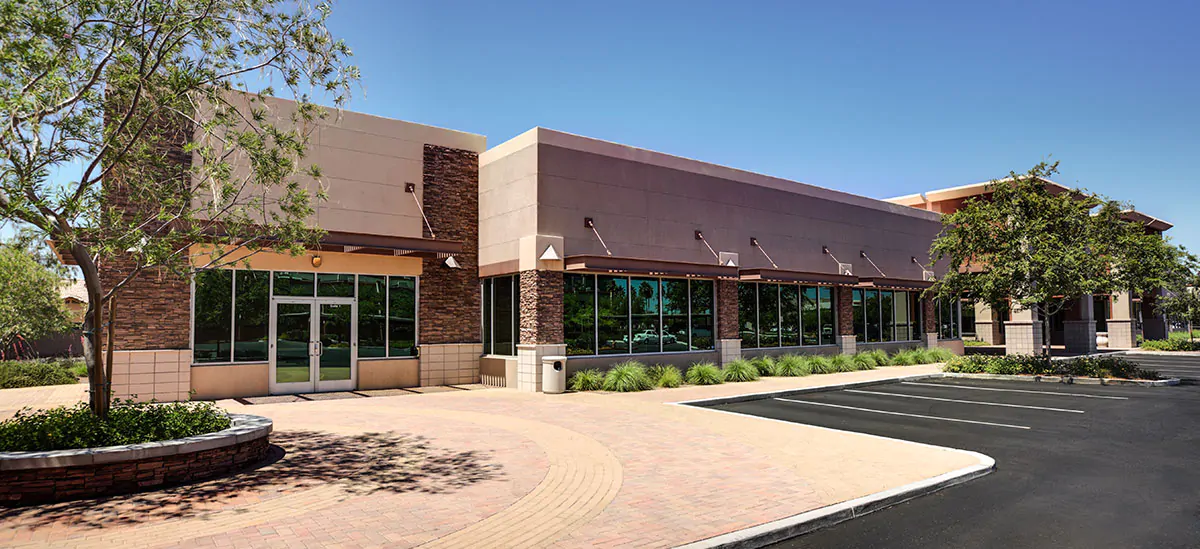An Overview of Commercial Real Estate Trends in Colorado

Colorado, celebrated for its stunning landscapes and dynamic urban centers, serves as both a haven for outdoor enthusiasts and a burgeoning hub for commercial real estate investors. Upon closer examination of the state’s commercial property market, it becomes apparent that various factors, including economic growth, demographic shifts, and emerging industry trends, play pivotal roles in shaping Colorado’s real estate landscape.
Economic Strength
Colorado’s economy has demonstrated remarkable resilience, navigating through economic downturns and emerging stronger with each challenge. This resilience has translated into a robust commercial real estate sector, attracting investors seeking stable returns amidst economic uncertainties.
The state’s diverse economy, spanning industries such as technology, healthcare, energy, and tourism, provides a solid foundation for sustained growth in commercial property markets, fostering a climate ripe for innovation and investment and propelling Colorado into a leading position within the national real estate landscape.
Population Growth and Urban Development
The state’s urban centers, including Denver, Colorado Springs, and Boulder, have experienced significant population growth, driving demand for commercial real estate. As more individuals migrate to Colorado for its exceptional quality of life and employment opportunities, the need for commercial spaces—whether office buildings, retail outlets, or multifamily developments—continues to escalate. The surge in residents not only boosts the need for commercial properties but also offers profitable prospects for developers and investors to leverage the expanding market.
Shifting Dynamics in Office Spaces
The COVID-19 pandemic has catalyzed substantial changes in how people work, prompting a reassessment of office space requirements. Hybrid work models, remote work arrangements, and flexible office solutions have become commonplace, leading organizations to reconsider their office space needs.
Commercial architects in Colorado are integral to shaping the landscape of the state’s real estate sector, infusing creativity and expertise into the design of office buildings, retail outlets, and industrial facilities to meet the demands of investors and tenants alike. Furthermore, suburban office markets are witnessing increased interest as companies explore decentralized work models to accommodate employees’ preferences for suburban living.
Rise of Industrial Properties
The surge in e-commerce activity and the necessity for efficient logistics infrastructure have fueled demand for industrial properties throughout Colorado. Distribution centers, fulfillment hubs, and last-mile delivery facilities are in high demand as retailers and logistics companies strive to meet consumers’ expectations for swift deliveries.
Additionally, the legalization of cannabis has spurred the development of specialized industrial properties to support the state’s growing marijuana industry. Industrial real estate thus presents a lucrative investment opportunity in Colorado’s commercial property market, driven by the state’s strategic location and favorable business climate.
Evolution of Retail Spaces
The retail sector in Colorado, like elsewhere, has undergone a metamorphosis in response to evolving consumer behavior and preferences. Conventional physical retailers are adjusting by merging online and in-person platforms, elevating the retail experience, and prioritizing experiential shopping concepts.
Mixed-use developments, which combine retail, dining, entertainment, and residential components, are gaining traction, catering to consumers’ desires for convenience and community-centric spaces. Retail real estate in prime locations remains attractive, albeit with a greater emphasis on adaptability and innovation, to remain competitive in a rapidly evolving market.
Emphasis on Sustainable Development
Sustainability and resilience have become central considerations in commercial real estate development across Colorado. With heightened awareness of environmental issues and climate change risks, developers are incorporating green building practices, energy-efficient technologies, and resilience measures into their projects.
LEED-certified buildings, solar installations, water conservation efforts, and stormwater management systems are becoming standard features in new developments, reflecting the state’s commitment to sustainability and responsible urban planning.
Moreover, governmental incentives and regulations further incentivize developers to prioritize sustainable practices, fostering a culture of environmental stewardship and driving innovation in the commercial real estate sector throughout Colorado.
Conclusion
Resilience, diversity, and innovation define Colorado’s commercial real estate landscape. Economic growth, population influx, evolving work dynamics, and shifting consumer preferences are driving demand across various property sectors. As the state continues to attract businesses, residents, and investors alike, ample opportunities exist for stakeholders to participate in and shape the future of Colorado’s vibrant commercial real estate landscape. By remaining attentive to market trends, embracing innovation, and prioritizing sustainability, Colorado is positioned to maintain its status as a desirable destination for commercial real estate investment for years to come.





